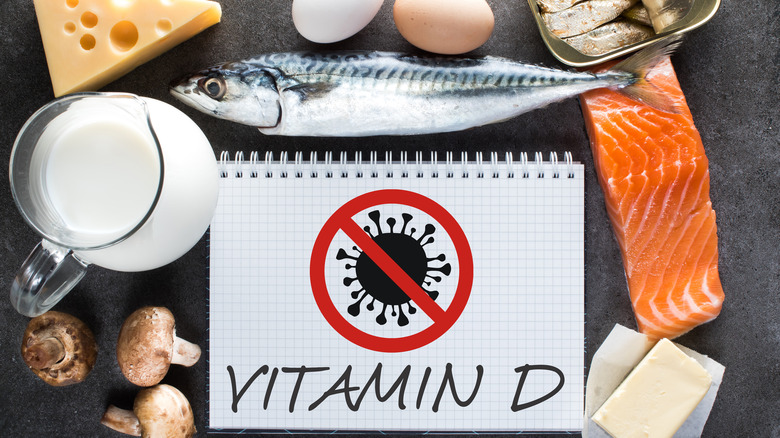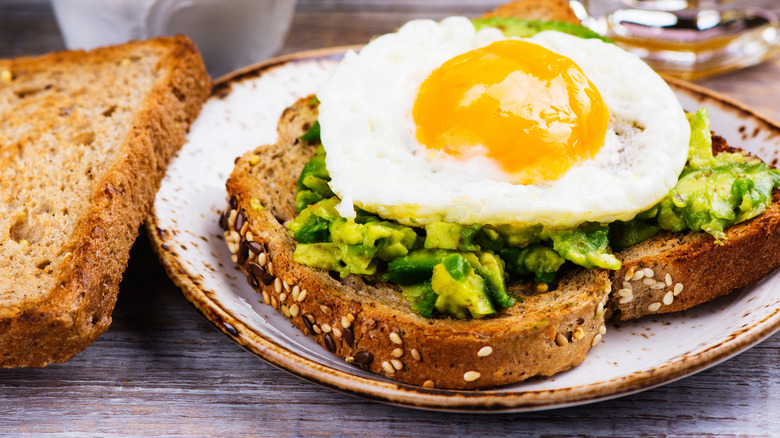Foods You Should Eat When You Have COVID
If you or someone in your household has developed a case of COVID-19, knowing which foods help boost immunity can be one way to support your or another's physical health during recovery from the infection.
When it comes to your immune system, certain foods serve it better than others. Your body needs all the help it can get to ward off infection, and foods that are high in sugar, as well as fast food or fried foods, do not help due to their inflammatory effects (via Health). The same is true for certain beverages, such as soda or alcohol. Author of The Family Immunity Cookbook dietitian Toby Amidor explains, telling Health, "Consuming too much alcohol can compromise your immune system, making it harder for it to defend your body against foreign invaders."
Now that you know which foods to avoid while you rest and recover, which ones should you be taking in to give your body all the ammo it needs against COVID-19?
The importance of vitamin D
Research regarding food and its effects on COVID-19 symptoms is limited (per Health). However, certain foods containing critical vitamins and minerals that boost immunity, rather than hinder it, will allow your body to fight infection to the best of its ability.
Vitamin D is pivotal when it comes to immunity. A 2022 study published in PLOS ONE examined the relationship between vitamin D levels prior to infection and symptom severity in patients hospitalized for COVID-19 in Israel between April 2020 and February 2021. It was determined that the chances for developing a severe case of COVID-19 were 14 times higher in those who were vitamin D deficient. In addition, those who were vitamin D deficient also had a 23.3% higher risk of COVID-19-related death than those with healthy levels of vitamin D (via WebMD). Foods such as salmon, tuna fish, dairy, and orange juice are all great sources of vitamin D which can help support your immune system both before and during infection, according to Harvard School of Public Health.
Stick to whole grains and protein
When eating for a healthy immune system, you also want to make sure you're getting adequate amounts of whole grains and protein in your diet (via Health). Fiber-rich whole grains support the growth of good bacteria in the gut, thereby reducing inflammation and boosting immunity. Similarly, protein improves immune cell function and supports muscle growth and tissue repair. Beef, pork, chicken, beans, and tofu are all great proteins to eat when you're sick. Even better, tossing some protein into a vegetable-hearty soup or stew may make it easier to digest, if weakness or fatigue are among your symptoms.
If you have COVID-19 and are experiencing a loss of taste and smell, dietitian Ana Reisdorf stresses the importance of continuing to eat even though it may prove challenging, stating via Health, "If you don't have a sense of taste or smell, it is easy to just not eat, especially if you are not feeling well. But if you don't eat, you won't feel better."



